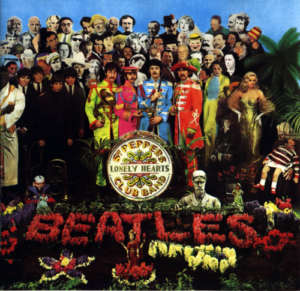Few things unleash memories as vividly as a favorite song from our past. We don’t just remember the tune; we can often recall exactly where we were, whom we were with, sometimes even what we were wearing when we first heard a tune on our personal Top Hits list. There are a number of reasons for this powerful recollection, including the geography of the brain itself.
Music, Emotion, and Memory in Harmony
Links among three areas of the temporal lobe (at the bottom of the brain) help determine how well we remember a song:
- Primary auditory cortex. This part of the brain enables us to interpret the sounds we hear, helping us distinguish sounds with a pattern from chaotic noise.
- Amygdala. This structure processes emotions such as fear, anger, and pleasure. Neuroimaging confirms that the amygdala tends to have a heightened response to music and is activated more by songs than by random collections of sounds.
- Hippocampus. Memories are organized and stored here. The hippocampus also helps connect emotions to sensory input, including sound. Songs that trigger more of an emotional response are more likely to be remembered.
While a song can affect our emotions, our emotional state when we hear it also influences our response to the song. The setting plays a role as well. If we first hear a song, for example, during a highly pleasurable experience (say, a great party), it can attach to that experience and elevate our mood when we hear it again in neutral situations.
Why Songs from Our Teens and Young Adulthood Dominate Personal “Top Hits” Lists
For many people, music consumption is at its peak from adolescence through the early twenties. This is when musical tastes are usually shaped, and these tastes often hold true from then on.
But it’s not just the many hours of listening that forge these musical preferences. Adolescence is when we begin figuring out who we are. This search for an identity, combined with an increased release of hormones during our teen years, makes us hungrily absorb and evaluate our daily experiences and interactions with peers. The music we listen to during this phase of our development becomes inextricably linked to this quest for personal definition.

It was 1967. I had just entered high school and was about to break up with my girlfriend. Every day it seemed that my voice was getting lower and my body was growing taller.
I went with some classmates over to a friend’s house to hear a new record album. Not just any album; it was the Beatles’ Sgt. Pepper’s Lonely Hearts Club Band.
I can see us all with mouths agape as we were launched into a new era of rock ’n’ roll. My friend Kevin looks at the lyrics on the album jacket. Tom lies on the couch. Bill sits cross-legged on the floor. I stand in the middle of the room. I can smell the pot roast cooking in the kitchen for Kevin’s family dinner.
I freeze and stop breathing when “A Day in the Life” begins. And, to this day, hearing the first notes of that legendary song brings all the emotions and images of that afternoon into orbit around my consciousness.
Many first-time experiences that occur during these years have an accompanying soundtrack—from first dates to first kisses to the first time driving a car. The intensity of this connection between moment and music results in what are called “reminiscence bumps”—memories that we can vividly recall as we get older.
According to Petra Janata, a psychology professor at the University of California, Davis, “a piece of familiar music serves as a soundtrack for a mental movie that starts playing in our head. It calls back memories of a particular person or place, and you might all of a sudden see that person’s face in your mind’s eye.”
Understanding the importance of music that matters to us personally is actually guiding efforts for memory enhancement in patients with Alzheimer’s disease. Even when memory in general is in decline, the ability to recall favorite songs often remains intact. Janata and others are researching ways to develop music-based therapy for those afflicted with this disease.
Take a Stroll Down Your Own Musical Memory Lane
Think back to when you were a teenager and first heard a song that would become one of your favorites. Write down where you were and what was happening around you during that pivotal listening experience. You may be surprised by how many vivid memories make an appearance!
Find Out More
- Daniel J. Levitin, This Is Your Brain on Music: The Science of a Human Obsession
- “Study Finds Brain Hub That Links Music, Memory and Emotion,” University of California, Davis, press release




1 Comment
Barbara Botta
Very interesting article. … like the biology behind it. Luv Ed Decker’s articles. ….